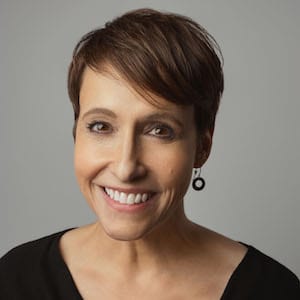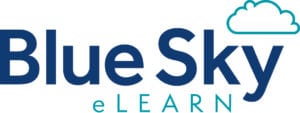
As a leader – or aspiring leader – in the business of lifelong learning, it’s par for the course that you will need to have challenging conversations within your organization and the people that you serve. And related to that, oftentimes the challenge lies in effectively communicating to an audience representing a wide range in age and years of experience.
Jennifer Abrams is an expert in overcoming these challenges and has written various books including, Having Hard Conversations, The Multigenerational Workplace : Communicate, Collaborate, and Create Community, and Hard Conversations Unpacked : The Whos, the Whens, and the What-Ifs. She’s also a communications expert, a designer of professional development, a speaker, and, with a few e-courses under her belt, an entrepreneurial subject matter expert (eSME)—if that term is new to you or you need a refresher, see our related post about the rise of the eSME.
In this episode of the Leading Learning podcast, Celisa talks with Jennifer about hard conversations and the multigenerational workplace, including the impact each of these have on both leading and learning.
To tune in, just click below. To make sure you catch all of the future episodes, be sure to subscribe by RSS or on iTunes. And, if you like the podcast, be sure to give it a tweet!
Listen to the Show
Read the Show Notes
[00:18] – Thank you to Blue Sky eLearn, sponsor of the Leading Learning podcast for the first quarter of 2018. Blue Sky is the maker of the Path learning management system, an award-winning, cloud-based learning solution that empowers your organization to maximize its message. Blue Sky also provides a range of virtual event and instructional services to help you maximize your content and create deeper engagement with your audience. To find out more about Blue Sky eLearn and everything it offers, visit https://www.blueskyelearn.com.
[01:27] – Highlighted Resource of the Week – “Unpacking Hard Conversations” – (second video on page) – a Webinar by Jennifer Abrams which offers an in-depth look at the topics she covers in her book, Hard Conversations Unpacked : The Whos, the Whens, and the What-Ifs.
[01:49] – A preview of what will be covered in this podcast where Celisa interviews Jennifer Abrams, author, entrepreneurial subject matter expert (eSME) and educational and communications consultant.
[02:53] – Introduction to Jennifer and some additional information about her work and interests.
[05:07] – How do you define the term “hard conversation”? What are some examples? Jennifer explains how hard conversations vary. In many of our fields, we have either qualifications, credentials, or expertise in our content and what we don’t get a lot of is the ability to work collaboratively with the other adults across the group we work with to serve our customer/student/patient. Essentially, hard conversations are broad-based and whatever it is that’s hard for you to communicate. Jennifer’s goal is to help people have humane, growth-producing conversations.
[08:02] – What do you see as the connections between having hard conversations and learning? Do the organizations offering continuing education, professional development, and other lifelong learning have a need or even an obligation to address hard conversations? Jennifer admits she has a “cognitive crush” on two researchers— Robert Kegan and Lisa Laskow Lahey, Harvard psychologists who wrote, An Everyone Culture: Becoming a Deliberately Developmental Organization, a book about cognitive developmental theory. They explore whether organizations are creating a culture that truly develops their people and makes it a part of their mission. Jennifer says we need to focus on both talent development and human development. She adds that a more conscious, intentional, capable, communicatively savvy employee is a gift and will make the work go easier. Sometimes it’s challenging for the individuals to push back or have cognitive conflict on their teams and hard conversations may be perceived as having an indirect impact to help you reach your goals but they are, in fact, essential regardless of the field you’re in.
[11:40] – The multigenerational workplace is another area where you’ve chosen to focus your work. What got you interested in the multigenerational workplace? Jennifer shares that she went from teaching high school to teaching new teachers—when she started doing this, she realized they were having different ideas about what various things related to work looked like – and that it was shifting – even though the organization wasn’t shifting. This made her realize that we need to be much more savvy—what she calls “generationally savvy”. This led her to finding Valerie von Frank who she co-wrote, The Multigenerational Workplace : Communicate, Collaborate, and Create Community with.
[14:43] – What challenges and opportunities do multigenerational learners represent, and what would generationally savvy learning businesses do to address those challenges and seize those opportunities? Jennifer shares there are so many ways to do this—such as a podcast like this—and she stresses that all options of blended learning are fantastic and we should find ways to utilize all the technology that is attached to the fingertips of younger people. Her caution is related to the fact that some skills should perhaps be learned in person rather than solely online. She loves the generational options but points out we are losing the ability in some ways to make decisions that might be in the best interest of the learning target if we don’t do some stuff face-to-face—and there should be some discussion around this.
[19:55] – When you’re working with subject matter experts (SMEs) and others, what do you tend to see the biggest opportunity for improvement? Are there one or two concepts or skills that if they “get” those, it makes an appreciable difference? Jennifer talks about the idea of adult learning and that adult learners need to be engaged, active, self-directed, and in the learning. But SMEs often think their role is to teach the content and don’t necessarily allow the adult in the room to make sense of it, apply it, or shape it because they have a lot to say. She wonders if they understand the learning theory that requires a lot of what she calls, “set it up, and then be quiet”—or the ability to “give them some gum and let them chew it”. Jennifer says it’s about noticing that you’re not just delivering some information, learners actually need to take in the information. When she does this with clients, she asks what are the four things that are absolutely important and how are you actually going to develop adult learning experiences around them being able to grasp that and take it away? Then she asks where they are developmentally in this—are they complete novices? Basically, you need to backwards design and engage adults at the appropriate developmental level.
[24:53] – You talk and write about scripting, both to avoid “trigger” words that can negatively impact listeners and to use words that will influence and persuade the listener. Can you talk a bit about scripting, and how we can determine which words have negative power and which ones have positive power? Jennifer explains that trigger words are words that may offend or be inflammatory—they can happen in tones, additional words, verbs that get added, etc.
[28:14] – Jennifer elaborates on the idea of influence and persuasion. She talks about another “cognitive crush”—David Rock, author of Your Brain at Work: Strategies for Overcoming Distraction, Regaining Focus, and Working Smarter All Day Long (see also his website, https://davidrock.net/). He explains that in order to be more influential, you really need to know psychologically that adults are still triggered by fight or flight and around that he talks about 5 domains of human social experience (SCARF): Status, Certainty, Autonomy, Relatedness and Fairness. The idea is that you can use different words to meet a particular need. And depending on how well you know the person, you need to know the words you need to learn not to say which helps to be more influential. Jennifer talks about the importance of becoming more “allo-centric”—or “other-focused”. In order to get the communication across with less misunderstanding you need to know who you are talking to—generationally, by title, their concerns, etc.—so know your audience and focus on others.
[32:28] – As part of your work with the multigenerational workplace, you’ve focused on building capacity in aspiring leaders, and we bill the Leading Learning Podcast as being for leaders and aspiring leaders in the business of lifelong learning. What’s at stake in building capacity in aspiring leaders, and what do they need to do, and what do the current leaders need to do to build capacity? Jennifer says her assumption is that aspiring leaders are younger in age. If that’s the case, you need to know and be able to lead people of all different generations and understand that your way of doing something may be better in many ways but discounting other peoples ways of doing things can create bad feelings. On the opposite end of the spectrum, older/seasoned/more veteran people should be able to receive feedback from their younger colleagues—so don’t worry about your ego, worry about the learning experience for those in the workplace.
[36:09] – What is one of the most powerful learning experiences you’ve been involved in, as an adult, since finishing your formal education? Jennifer shares two—one was being coached by Bob Garmston (who created cognitive coaching) which turned out to be one of the most transformational experiences of her life—and led her to write her Hard Conversations book. The other, was that a colleague in her field started something called “learning omnivores”—the idea being they are always the ones presenting and giving the workshop and they need to be learning so much more than they have time for. They designed something where they could go to a person and learn with them to ask them about their learning. She called somebody named Robert Marshak, author of Covert Processes at Work : Managing the Five Hidden Dimensions of Organizational Change and spent the day with him and studied the book. This made her realize that if she needs to learn something, she has to go out and learn it. That sense of resourcefulness and agency that learning omnivores gave her is something she shares with others but nobody has taken her up on it.
[40:09] – How to connect with and/or learn more about Jennifer:
- Website: https://jenniferabrams.com/
- Email: Jennifer@jenniferabrams.com
[40:57] – Wrap Up
If you are getting value from the Leading Learning podcast, be sure to subscribe by RSS or on iTunes. We’d also appreciate if you give us a rating on iTunes by going to https://www.leadinglearning.com/itunes.
We’d also be grateful if you would take a minute to visit our sponsor for this quarter, Blue Sky eLearn. In addition to finding out about their services, you will also find a variety of great resources that they offer for free.
Also, consider telling others about the podcast. Go to https://www.leadinglearning.com/share to share information about the podcast via Twitter, or send out a message on another channel of your choosing with a link to https://www.leadinglearning.com/podcast.
[43:03] – Sign off



Leave a Reply